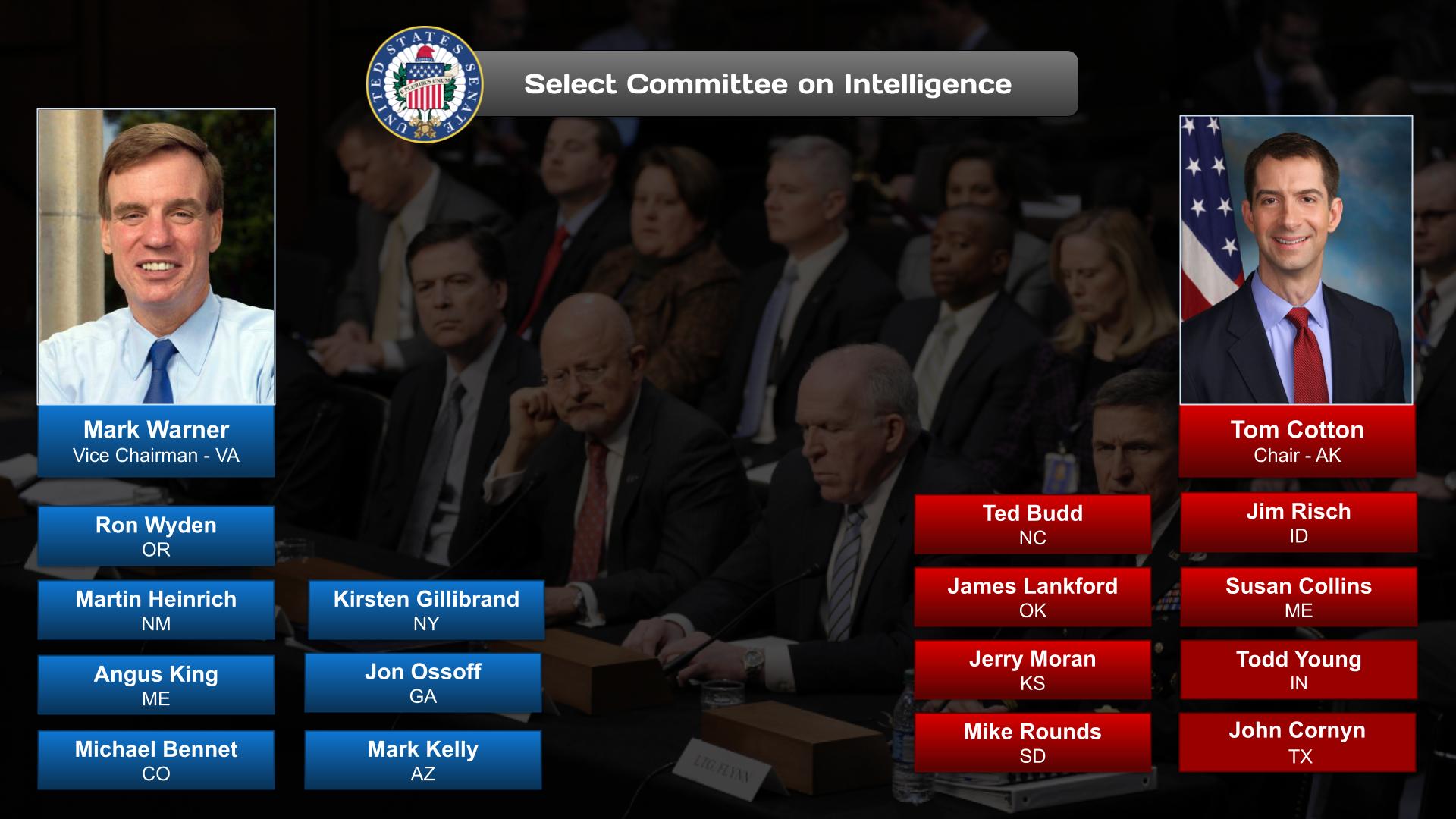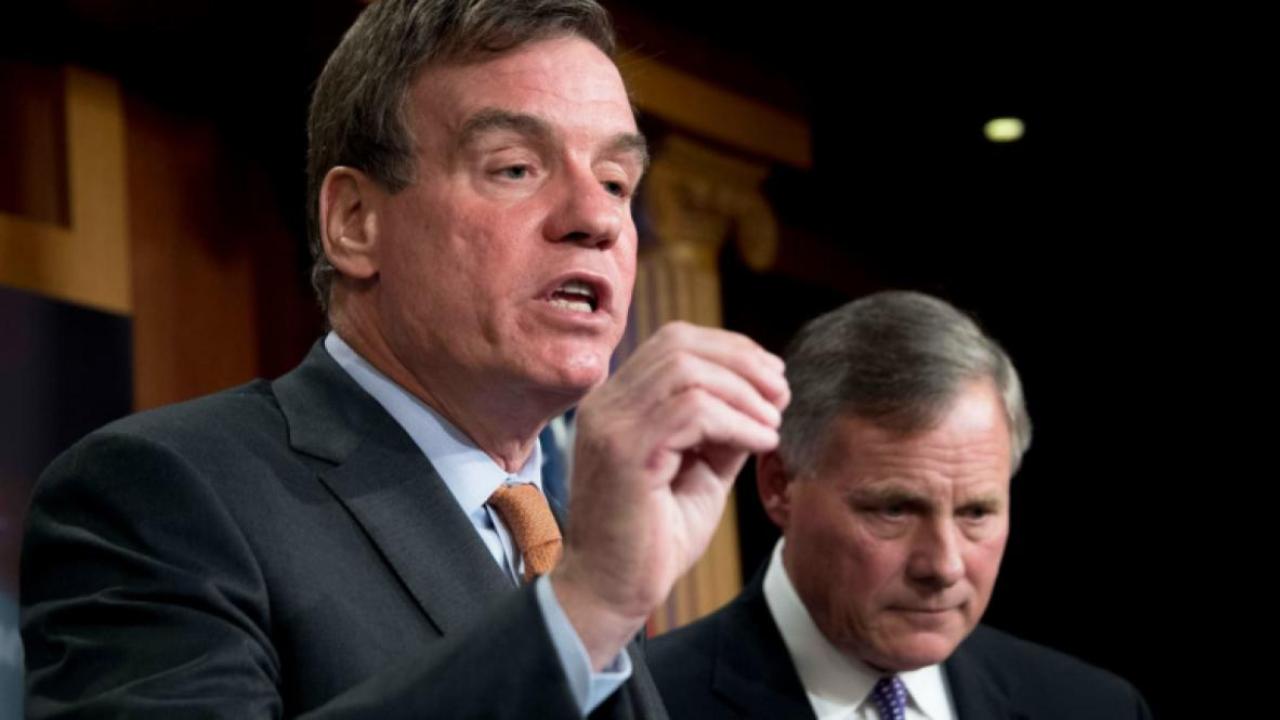Mission:
The Committee was created by the Senate in 1976 to “oversee and make continuing studies of the intelligence activities and programs of the United States Government,” to “submit to the Senate appropriate proposals for legislation and report to the Senate concerning such intelligence activities and programs,” and to “provide vigilant legislative oversight over the intelligence activities of the United States to assure that such activities are in conformity with the Constitution and laws of the United States.”
House counterpart: Permanent Select Committee on Intelligence
Democratic Members (Minority):
Mark Warner, Virginia (Vice Chair)
Ron Wyden, Oregon
Martin Heinrich, New Mexico
Angus King, Maine[20]
Michael Bennet, Colorado
Kirsten Gillibrand, New York
Republican Members (Majority):
Tom Cotton, Arkansas (Chair)
Jim Risch, Idaho
Susan Collins, Maine
Tom Cotton, Arkansas
John Cornyn, Texas
Featured Video:
Senate intelligence committee holds hearing on threats worldwide
OnAir Post: Select Intelligence Committee (Senate)



